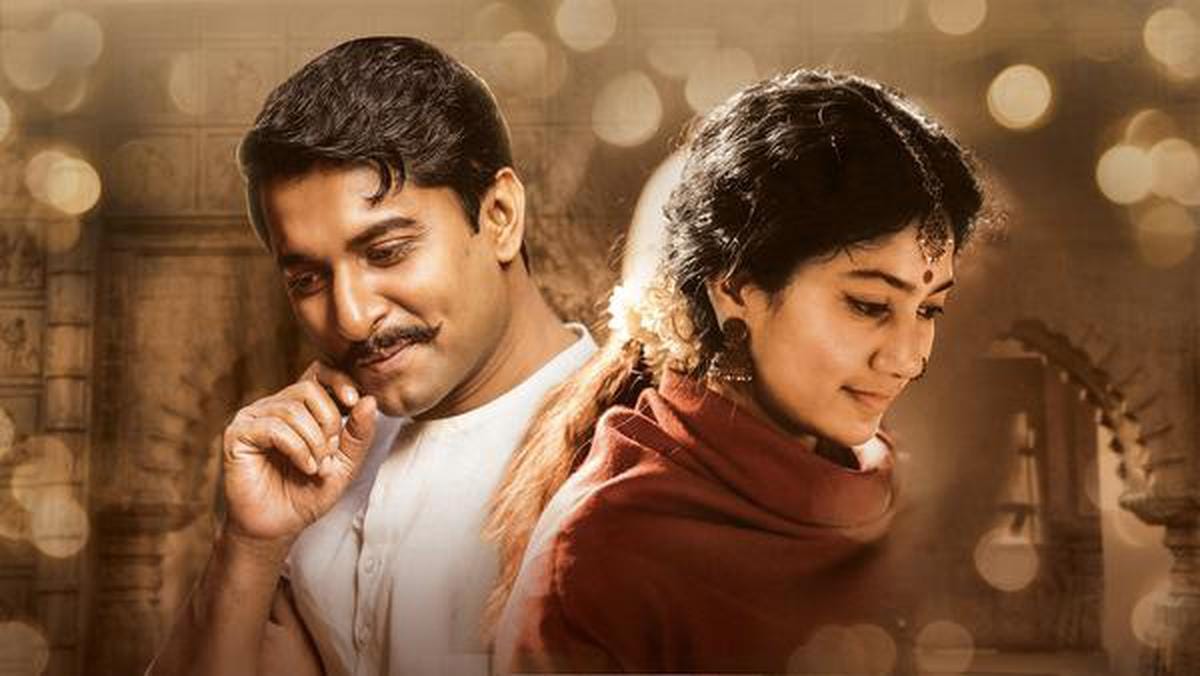I am a sucker for reincarnation movies, even though I don't quite believe in the concept myself.
Shyam Sinha Roy is another such film, on re-birth, with a tried and tested plot. And yet, our hero (Shyam Singha Roy) is a communist.
Yes, a God non believing, caste non believing, feminist movement supporting (genuine) communist. In the times that we are living in, this representation is not just a rarity, but if portrayed, it will be in the role of a blasphemous anti-national. But this Shyam stays true to the original romanticism that communists once offered.
Armed with a typewriter, a pen, and later - a fully functional printing press - Shyam Singha Roy rejects the Naxal movement’s offer of violence, choosing his rebellion with words alone. This story is of his stories.
The movie doesn't start with this though.
It starts with an IT engineer Vasu who has quit his job to make movies (I was actually sold at that point only). Like all typical re-birth movies,Vasu has these ‘flashes’ of his past life, where his ears bleed and he starts writing in a trance.
In a press conference celebrating the success of his movies he is arrested for plagiarism. Apparently the stories that his movies are based on are copies of Bengali novels written by a certain Shyam Sinhgha Roy in the 1970s. Descendants of Shyam Singha Roy's family are now suing Vasu, claiming that he replicated plots, themes, and even specific character arcs from Roy's works without acknowledgement or permission.
A case is filed and Vasu pleads innocent. It is only when his girlfriend takes him to past life regression therapy (pardon the pseudo science here and move on, the story actually takes off from this point), that we realize that he is the reincarnation of Shyam Singha Roy. The stories are not plagiarized. He is the original writer, from another birth.
Back in the 1970s in the early onset of the Naxal movement, a certain Shyam Singha Roy, coming from an affluent family of Bengali Bhadralok, was a communist, and an atheist (did I mention that? Yes. But it is important to stress the point here).
He is an atheist, and yet, in the 9 days of Navratri, he finds God in ways that people who spend their entire life in the pursuit of the divine cannot. He finds it in love. He falls in love with a Devdasi, a so-called consort of God. Rosie (as he later gives her a name) loves him back, but is unable to break the shackles of society in reaching out to him and pursuing her desires.
Not a lot is spent on the background of Rosie, she remembers being trafficked from Bangladesh, when her parents abandoned and sold her. Her religion is not mentioned. Rosie as an artist, as a person, is just enough.
Devdasis are the one of the worst forms of exploitation that was rampant in India in the name of religion (like sadly, so many social evils are), where women were ‘given’ by families willingly to serve God (which in reality, translated into the service of the Priest and the servitude of the Temple). It took many Shyam Sinha Roy’s to eradicate it completely. Like Rosie mentions in the movie when Shyam urges her to break free and escape - “The idol in that temple is more expensive than me”.
I watched and rewatched the scenes where they meet every night in secret, the song filling my heart till the language (Telugu - the movie isn't available in Hindi) ceased to matter.
There is her dance, where she is the fierce Goddess, and her fragile daughter too. There is a boat that sways with their gentle conversations in the moonlight, where they escape for 9 days away from the watchful society. And there is poetry and music. Falling in love, being in love, rebelling for love, dying for love. All the seven stages and beyond. She dances through it. He writes. They create their own drama. Timeless.
In Dil se, Shahrukh Khan’s love for Meghana is intense, all consuming, and so heartbreaking. Their tragedy haunts you weeks after - no, years after you watch the movie.
In this film, Shyam and Rosie’s love is equally intense and tragic. And yet, it doesn't unsettle you. Shyam and Rosie are not ‘fana’ to each other. Their love doesn't destroy them, but rather empowers, uplifts them, and also brings hope to those who witness it. And that is why perhaps, in the film, Rosie continued to live and thrive long after her one true love has died. And Shyam Sniha Roy becomes immortal through his words.
The film moves you, in ways you cannot describe, so completely that your heart which has stopped hoping, yearns for love again. Where there is predictable drama and sluggish beginnings, the songs and the performances redeem the film. It cannot be termed as historical fiction, and still we are tempted to deep dive into some forgotten chapters of history.
There is one scene where Sai Pallavi (mentioning her name here to emphasize her brilliant performance) is on the beach all alone at night with Shyam. She takes sandalwood from her bag, applies it to herself and submerges herself in water, only to come out and dance in ecstasy. This dance is not for any priest, or audience. It is not for God, it is not even for her lover. On Navami, she dances for herself.
The movie puts women on this pedestal, and yet I would complain that all Rosie’s fights were taken by Shyam only. Later in the movie though, it is another young woman who takes up Vasu’s case and fights for him.
But then, the Sirivenella song plays and I forget everything.




